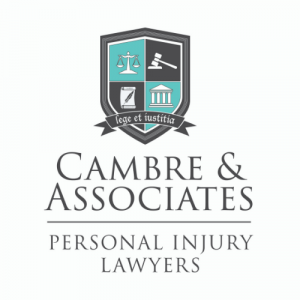The Importance of Testing for Traumatic Brain Injuries Before It's Too Late

ATLANTA, October 6, 2021 (Newswire.com) - Traumatic brain injury (TBI) results from an impact to the head. Injuries can be mild or more serious and leave bruising, torn tissue, internal/external bleeding or physical damage to the head and/or brain. The consequences of traumatic brain injuries can be fatal or life-altering without even realizing it. Diagnosing head trauma after an accident can change the trajectory of a victim's personal injury claim at Cambre & Associates personal injury law firm.
The board-certified physicians at Hope Neurological & Medical Services treat rare and complex conditions. They provide an accurate diagnosis through physical and psychological evaluations. Hope Medical Services include a videonystagmography (VNG) which observes brain activity from the inner and central motor functions. The test can uncover root symptoms of vertigo, dizziness and balance problems. It's important to get a VNG balance evaluation before a TBI affects one's ability to do the simplest tasks.
When involved in an accident that injures the head, neck or spine, get tested for a traumatic brain injury even when there are no physical symptoms. Signs and symptoms can be mild, internal or delayed - appearing days or weeks later - so the wounded may not suspect they have experienced an injury. The wide range of side effects can be physical or psychological, and it is important to be evaluated by a medical professional with a specialization in head trauma and spinal injuries.
Common causes of traumatic brain injury are motor vehicle accidents, slip and fall injuries, blasts or explosions, sports injuries and blunt-force trauma. Adults over 65 years old are at greater risk of being hospitalized or dying from a TBI. It is recommended to see a doctor if involved in an accident that resulted in an impact to the head. Some victims are unaware they hit their head because they lose consciousness. Mild symptoms of a traumatic brain injury include headache, nausea, speech problems, loss of balance, light sensitivity and other sensory problems. Symptoms can be cognitive or behavioral, resulting in mood swings, depression, memory loss, insomnia and much more.
Severe damage can cause symptoms including seizures, pupil dilation, numb fingers and toes, confusion, slurring or mumbling, and even a coma. At the site of an accident or injury, it is important to seek emergency medical care if the impact is recent. This can offset the severity of damage if medical professionals can promptly treat injuries.
Cambre & Associates personal injury attorneys have a network of leading medical providers to support cases involving complex personal injury litigation, catastrophic injury claims, and motor vehicle accident claims. Cambre attorneys represent clients who are victims of brain/back/neck/spinal cord injuries. To learn more about Cambre & Associates or for a free case evaluation, please visit www.GlennCambre.com
Press Contact Information
Chidere Igwe
chidere@glenncambre.com
470-870-7716
References:
Hope Neurology | Neurological & Medical Services (hopeneuromed.com)
Traumatic Brain Injury | TBI | MedlinePlus
Traumatic brain injury - Symptoms and causes - Mayo Clinic
Source: Cambre & Associates
